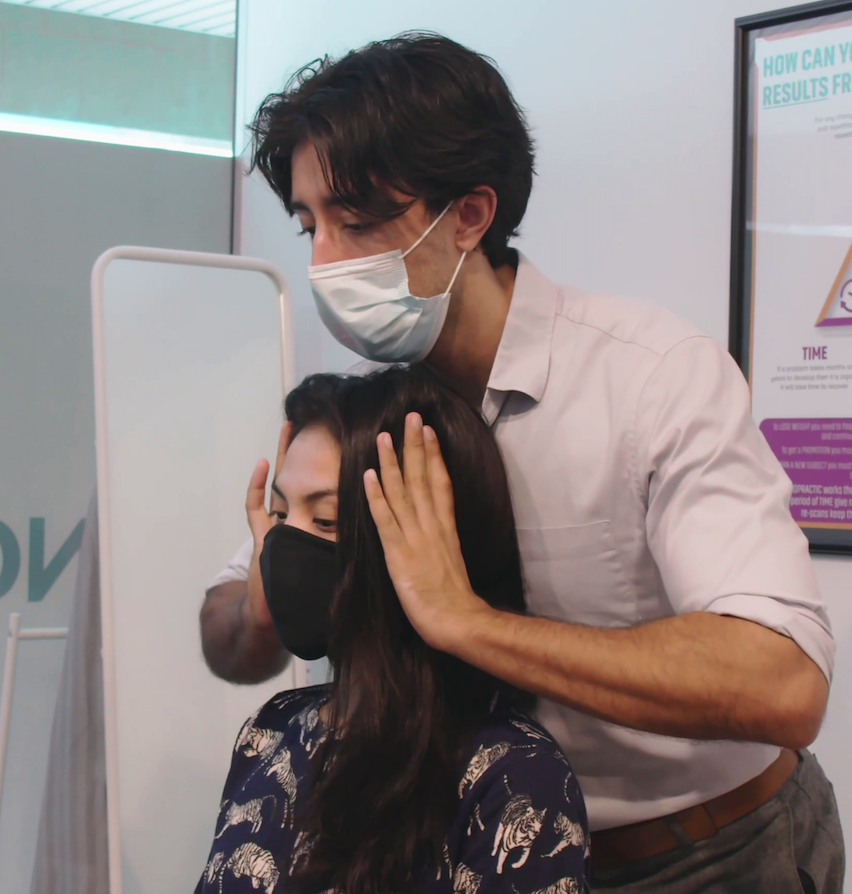It’s hard not to feel stressed these days. Whether you’ve had life plans upended by the pandemic, are having trouble adjusting to the oft-quoted “new normal”, or just fretting simply because of the cesspit of bleak news — it’s easy to feel overwhelmed by it all.
It might be common to feel stressed, but that doesn’t mean it should be left unchecked. Plus, as it turns out, stress is far more than a vague, intangible feeling — it can have very real and physical effects on your body.
“The body thinks that there’s danger in front of you, so it doesn’t deal with all the things that are going on inside,” says chiropractor and nerve system specialist Shaan Rai, who runs Vitality Chiropractic Centres.
He says that he’s seen many patients come in after the circuit breaker with ailments related to working from home — think backaches from hunching over coffee tables and migraines from dealing with work and family in the same space.
Read on to see what he has to say about stress — and why you shouldn’t dismiss it.
‘Stress’ sounds like something vague and intangible. But is it really just all in our heads?
This is one of those common misconceptions — stress is completely tangible. Research has shown that if you’re in a stressful situation, there are changes in blood flow to the brain that start to affect your adrenal nerves, how your muscles tense. Everything starts to have that trickle-down effect.
So how does stress translate into physical symptoms?
Stress changes the brain chemistry — it affects hormonal levels, and that then stimulates muscles to be more tense — it’s what we call the fight-or-flight instinct. The problem with that, though, is this: If your muscles — especially those around your shoulders and legs — start tensing in anticipation of a fight, you don’t have much blood flowing to your organs and your immune system.
So things are more likely to get worse. That’s why people get systemic effects such as ulcers and poor sleep, because the body thinks that there’s danger in front of you, so it doesn’t deal with all the things that are going on inside.
Have you been seeing a spike in specific cases or complaints since the pandemic began?
There’s definitely a spike in issues related to working from home. It’s a mix of physical stress and mental stress. Physical because you’re not working at a desk of a proper height, you’re working at a coffee table or something — and there’s mental stress that might have gotten worse.
With lockdowns, there’s always this feeling of being secluded, feeling kept away from other people, and feeling stressed about the scenario that’s going on in general.
So how would a chiropractor help in these cases?
When people think about chiropractors, they think about the bones, they think about the spine. But in the bones, in the spine, you have these big holes in the centre — and they house the most important nerves in the body. So if there’s a misalignment in the neck or spine, that could start to affect the nerves. and this could have a bigger effect on the rest of the body — like symptoms you can feel, such as a headaches — or things in the background like organ function.
So we do work with the bones, but really it’s about the nerves.
You specialise in the upper cervical area of the spine. Why is that area so important?
The upper cervical area — the top two bones starting from behind your ears — isn’t just for issues around the head and neck. In that area, you have the brain stem, which is kind of like the control centre of the body: any information from the brain goes here, and it says where to go in the body.
So if there’s some level of dislocation of those bones, it could put direct pressure on the brain stem. The other thing your body might do — because it’s very intelligent — is that it might start to shift itself in ways to take that pressure off. But then your posture changes, and this can then start to affect the hips, and even lead to one leg becoming longer or shorter than other.
That sort of dislocation might start with things like trauma or an accident, but it can get worse over time with poor posture, sleep positions, and stress and fatigue.
What’s your opinion on cracking one’s neck and/or back — and why does it feel so good?
It’s a terrible, horrible habit to have. I wouldn’t even do it on myself! You can crack your knuckles as much as you like, but don’t crack your neck and your back. That satisfying feeling is from the endorphins releasing — but I wouldn’t recommend you do it. It might feel weird not doing it, but trust me, it’s better overall.
I hear you’re quite big on charity. Tell me about some of your recent initiatives, and why it matters to you.
When the pandemic started, we started offering free care to healthcare workers in Singapore — there’s no limit to how many times they can come in, and it doesn’t matter who they are — whether you’re a doctor or a porter, you’re welcome. I have friends who work in healthcare, and it’s not an exaggeration to say that they have no holidays — especially for this year.
During the circuit breaker, I gave some talks with the Humanitarian Organisation for Migration Economics (HOME), and before that, I did a free day with Aidha, where we did checkups and adjustments for domestic workers.
My parents were always charitable people — they’ve done lots of work with organisations back in the UK, as well as some connected with India — so it’s always been important to me.

